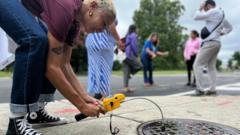When a star is born or dies, or when any other very energetic phenomenon occurs in the universe, it emits X-rays, which are high-energy light particles that aren’t visible to the naked eye. These X-rays are the same kind that doctors use to take pictures of broken bones inside the body. But instead of looking at the shadows produced by the bones stopping X-rays inside of a person, astronomers detect X-rays flying through space to get images of events such as black holes and supernovae. When a star is born or dies, or when any other very energetic phenomenon occurs in the universe, it emits X-rays, which are high-energy light particles that aren’t visible to the naked eye. These X-rays are the same kind that doctors use to take pictures of broken bones inside the body. But instead of looking at the shadows produced by the bones stopping X-rays inside of a person, astronomers detect X-rays flying through space to get images of events such as black holes and supernovae. Astronomy Phys.org – latest science and technology news stories
Chandra X-ray Observatory’s clear, sharp photos help astrophysicist study energetic black holes






